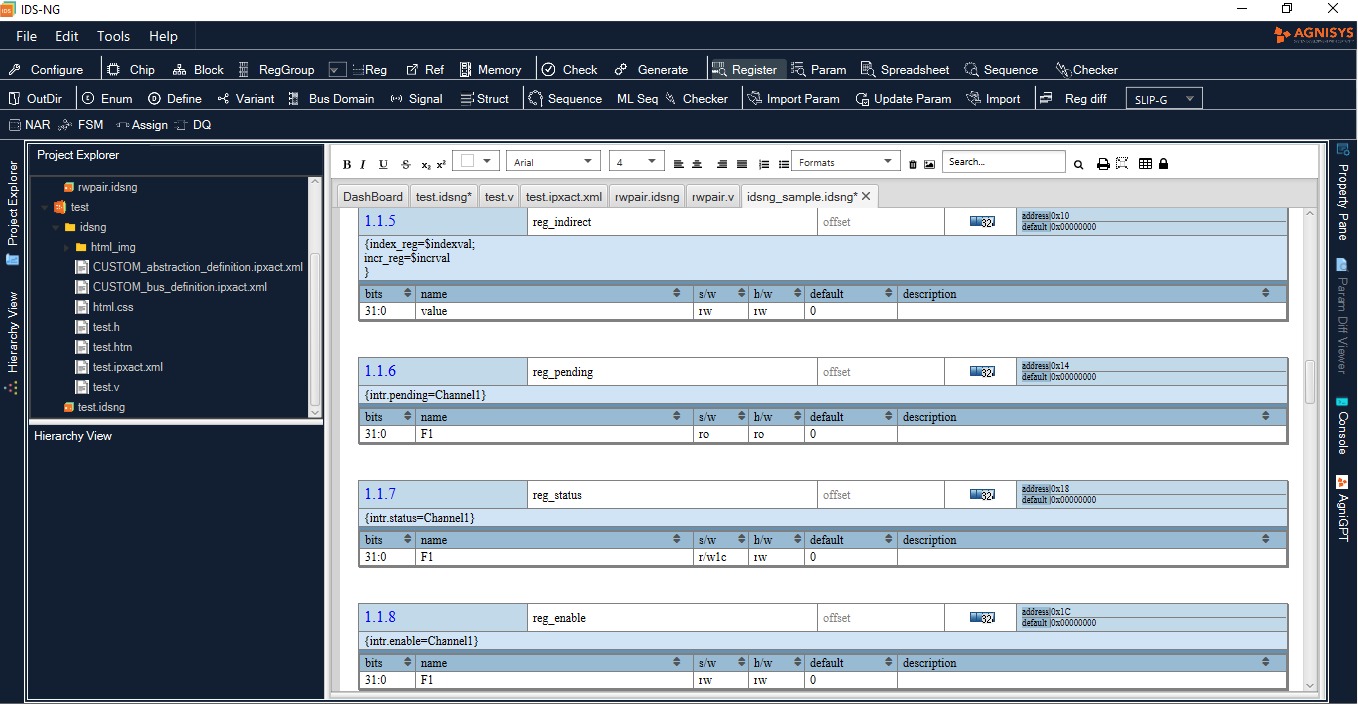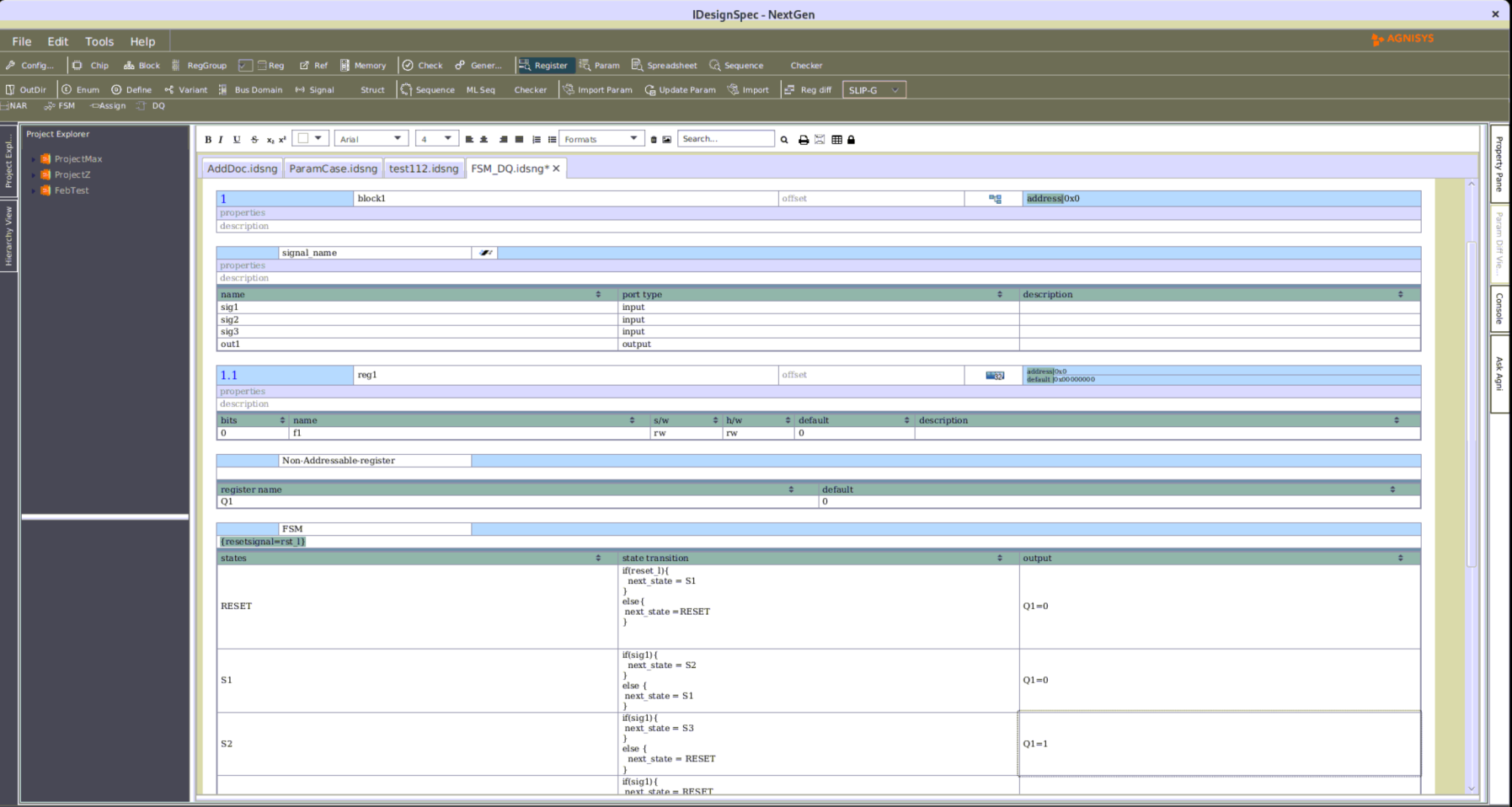Unlocking the Power of System Verilog Assertions with iSpec.ai
Introduction
Assertions play a pivotal role in hardware verification, both for dynamic (simulation based) verification and formal verification. These assertions, expressed in a specialized language, play a crucial role in ensuring the correctness and reliability of complex digital systems. However, crafting these assertions often requires a deep understanding of both the design under test and the intricacies of the assertion language itself. To simplify this process and empower engineers, Agnisys introduces iSpec.ai, a groundbreaking service that transforms natural English text into SystemVerilog Assertions (SVA) with precision and accuracy.
SystemVerilog Assertions: A Brief Overview
Before exploring iSpec.ai, let’s first understand the significance of SystemVerilog Assertions in the verification industry. SVA is essential for engineers, enabling them to formally specify the intended behavior of their designs. By expressing properties and constraints concisely, SVA facilitates rigorous verification, detecting errors early in the design cycle and reducing the risk of costly rework and system failures during deployment. From simple temporal (time based) relationships to complex protocol specifications, SVA empowers engineers to articulate a wide range of design requirements with precision and clarity.
Approaching the Challenge: iSpec.ai
At Agnisys, our mission is to democratize the process of generating SVA, making it accessible to engineers of all backgrounds. We are marching towards our stated vision of automatically creating hardware design directly from specifications. With iSpec.ai, assertions can be easily created from natural language specification, bridging the gap between a natural language and hardware verification.
To achieve this ambitious goal, we leverage state-of-the-art Large Language Models (LLM), renowned for their exceptional ability to understand and map dependencies between input and output sequences. Harnessing the power of machine translation, iSpec.ai transforms English specifications into SVA. In developing iSpec.ai, we have adopted a hybrid approach, combining the principles of prompt engineering and fine-tuning LLMs for downstream tasks. This strategic fusion allows us to leverage the strengths of both methodologies, resulting in a service that excels in generating high-quality assertions tailored to the unique requirements of each user.
Understanding Large Language Models
At the heart of iSpec.ai lies the concept of (LLMs), representing a significant advancement in natural language processing. Built upon transformer architectures, these models possess the remarkable ability to understand and generate human-like text across various languages and domains. Central to the efficacy of LLMs is self-attention, a mechanism that enables the model to weigh the significance of different words in a sentence while generating its output. By attending to relevant context and dependencies within the input sequence, self-attention empowers LLMs to capture intricate patterns and semantics, facilitating accurate and contextually relevant text generation.
Fine-Tuning for Downstream Tasks
While pre-trained LLMs exhibit impressive capabilities out-of-the-box, fine-tuning allows us to tailor these models to specific downstream tasks, such as generating SVA. However, traditional fine-tuning approaches pose significant challenges, particularly in terms of memory and compute requirements.
Historically, Full Fine-Tuning has been the predominant method, involving the updating of all model weights during the fine-tuning process. This approach, while effective, demands substantial computational resources, making it impractical for training and deployment on consumer hardware.
Enter Parameter-Efficient Fine-Tuning (PEFT) techniques, a paradigm shift in model adaptation. One such technique, QLORA, has emerged as a game-changer, offering a scalable and memory-efficient solution for fine-tuning LLMs. Quantization reduces computational and memory costs by representing model parameters with lower-precision data types. By employing techniques such as 8-bit integer quantization, QLORA achieves significant compression without compromising model performance.
Complementing quantization, Low-Rank Adaptation (LORA) targets the reduction of trainable parameters by selecting lower-rank matrices within the model architecture. By freezing pretrained weights and adapting only a subset of parameters, LORA minimizes memory overhead while preserving the expressive power of the underlying LLM. In essence, QLORA enables efficient fine-tuning of LLMs on consumer hardware, overcoming the barriers associated with traditional approaches and unlocking new possibilities for downstream applications such as iSpec.ai.
Addressing Challenges and the Path Forward
Despite the remarkable capabilities of iSpec.ai in SVA generation, challenges persist, particularly regarding data availability for fine-tuning. Accessing high-quality training data for niche domains like hardware verification remains a hurdle. Recognizing this, iSpec.ai is a work in progress, continuously evolving with each iteration. We’re committed to refining our dataset and improving accuracy through iterative development and collaboration with experts. By leveraging feedback and advancements in machine learning, we aim to overcome these challenges and push the boundaries of automated assertion synthesis. Join us in shaping the future of iSpec.ai. With your input, we’ll continue to set new standards in assertion generation, empowering engineers with efficient and reliable verification processes.
Conclusion
With iSpec.ai, Agnisys redefines the landscape of SVA generation, offering engineers a transformative solution powered by state-of-the-art machine learning techniques. By seamlessly translating English specifications into precise assertions, iSpec.ai empowers engineers to accelerate the verification process and enhance the reliability of their designs. Leveraging the synergy of large language models, fine-tuning methodologies, and parameter-efficient techniques like QLORA, iSpec.ai stands as a testament to innovation in hardware verification, paving the way for a future where complex assertions are as accessible as plain English.








